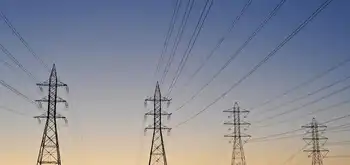Tanzania turning to coal-generated electricity
DAR ES SALAAM, TANZANIA - In a move to diversify electricity generation, the Tanzanian government is negotiating with a local coal company about generating and supplying electricity to the national power grid, local media reported recently.
Both the government and the state-run Tanzania Electric Supply Company Limited are negotiating with the Kiwira Coal and Power Company, a public firm, on the feasibility of feeding 200 megawatts of electricity to the national grid by the end of next year.
The negotiations are expected to finally conclude late this April or early next month, according to sources close to the Ministry for Energy and Minerals.
The coal company is said to have the potential of generating 400 megawatts of electricity.
But the three parties now involved in the negotiation have agreed through an agreement of intent about a scheme of tasking the coal company to generate 100 megawatts by mid next year and adding up another 50 megawatts by the end of next year.
Tanzania has been relying on hydropower for the past four decades, with seven hydropower plants combining to boast of an installed electricity generating capacity of 656 megawatts.
Yet due to the failure of rainfall in the short rain season late last year and early this year, these hydropower plants were only operating at 30 percent of their capacity, thus causing a nationwide power rationing that at one time lasted for as long as 16 hours a day in Dar es Salaam.
Tanzania's demand for electricity is 550 megawatts while its actual power consumption is around 400 megawatts.
The east African country has been resorting to natural gas- fired turbines to compensate for the electricity shortfall.
The steadily decreasing rainfall in recent years have forced the Tanzanian authorities to consider diversifying electricity generation so as to reduce sole reliance on hydropower, though affluent in the country but unreliable.
Natural gas is one source of energy for this power generating diversification program while coal stands the other, according to the ministry sources.
Related News

Cheap oil contagion is clear and present danger to Canada
CALGARY - A war between Russia and Saudi Arabia for market share for oil may have been triggered by the COVID-19 pandemic in China, but the cheap oil contagion that it will spread could have impacts that last longer than the virus.
The prospects for Canada are not good.
Plunging oil prices, reduced economic activity from virus containment, and the fallout from weeks of railway blockades over the Coastal GasLink pipeline all add up to “a one-two-three punch that I think is almost inevitably going to put Canada in a position where its growth has to be negative,” said Dan McTeague, a…




